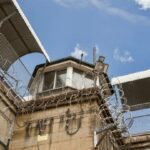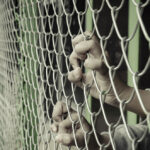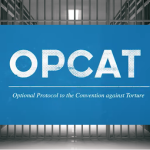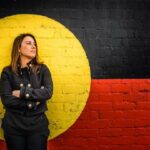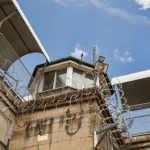OPCAT Debacle Continues: NSW Refuses UN Human Rights Inspectors Enter Prisons
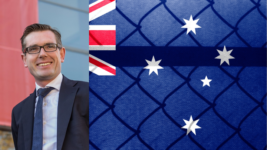
The UN Subcommittee on the Prevention of Torture (SPT) commenced its twelve-day long awaited and belated first visit to our nation on Sunday, in order to gauge how local authorities have implemented the OPCAT: a treaty designed to prevent human rights abuses of people in detention.
However, Australia OPCAT Network coordinator Steven Caruana pointed out on Monday that there was a stark omission in federal attorney general Mark Dreyfus’ SPT welcome statement, as when he thanked the states and territories for their cooperation, he didn’t mention NSW.
While it’s true that federal, state and territory governments have all dragged their feet on OPCAT implementation, NSW has refused to budge, citing a lack of federal funding. But when it boiled down to it this week, the state government admitted it just isn’t going to comply with prison inspections.
Adopted in 2002, the OPCAT (Optional Protocol to the Convention Against Torture) sets up independent inspection teams to conduct unannounced visits to all places where people are deprived of liberty to prevent rights abuses from happening. The SPT then provides UN oversight.
Since the SPT inspection team arrived, NSW has already refused it entry into one detention facility, while Queensland has said it will let the inspectors into its prisons but not the inpatient units.
And this begs the question as to why NSW, or for that fact, the whole nation, is so reluctant to allow the UN to inspect its places of detention. Although, the answer to that is an open secret.
“Nothing to hide”
NSW attorney general Mark Speakman first raised the issue of federal funding in regard to the OPCAT in March 2021, but this was obviously in relation to his state setting up its own inspections teams to visit closed environments.
So, how this translates to free UN inspections is a little mirky.
The SPT is an OPCAT oversight body comprised of 25 independent experts. What the treaty more broadly sets out is that our state should establish a National Preventive Mechanism (NPM), which are local independent inspection bodies that visit facilities, like prisons, and maintain human rights.
NSW corrections minister Geoff Lee turned up on 2GB with Ben Fordham on Thursday, bragging about how seven SPT experts had already been turned away from a court-connected detention facility in Queanbeyan, adding the state “has nothing to hide”, as it “treats all people with respect”.
Lee also banged on about NSW’s pre-existing oversight bodies. Yet, the NPM is a different style of inspection, as instead of randomly visiting centres to detect past harms, these visits are preventative in nature, meaning they ascertain potential rights abuses and stop them from occurring.
And the Guardian has further revealed that while Queensland will allow SPT inspections of its prisons, it will not permit the body to visit inpatient units. These are parts of prisons where inmates with mental health or medical issues are detained, as well as elderly prisoners.
NSW premier Dominic Perrottet hailed Queensland’s move as a “great decision”, which translates as the head of the NSW Liberal Nationals government considering that fellow humans, even Christians, who might be having their rights abused in secret will continue to do so, is something to celebrate.
NPMs, which operate with success around the globe, can inspect all places where people are deprived of their liberty. This includes prisons, youth detention centres, immigration facilities and closed mental health centres, as well as having the potential for aged care facility visits.
The OPCAT farce
Australia signed on to the OPCAT, which provides additional protocols built upon the 1984 UN Convention Against Torture, in 2009.
However, the nation that likes to present itself as rights-forward, didn’t ratify the OPCAT until December 2017. Ratifying a treaty means a nation agrees to implement it.
The reason why then federal attorney general George Brandis suddenly became an advocate for individuals our country is detaining was due to the international fallout from the 2016 Don Dale revelations that showed Australian youth prison guards torturing First Nations children.
The deadline for OPCAT implementation was 20 January this year, and our nation failed to adhere to it dismally. Indeed, the then federal Liberal Nationals government had to seek an extension of time.
And as then attorney general Michaelia Cash passively watched the deadline pass, most states and territories had either established or nominated an NPM, or they’d introduced or passed legislation to facilitate the OPCAT system, but no government had gone the whole way.
Yet, this did not include NSW or Victoria, as these states had done nothing by that stage.
Speakman was still upset about federal funding, and the rights-denying Scott Morrison crew had obviously done nothing about that part of the equation.
Do the crime, do the… whatever
When the British invaded this continent – the land the First Nations peoples had, and still have, sovereignty over – the European nation had already invaded a large number of countries and was currently reaping the benefits from exploiting their resources.
But, in this case, the monarch came up with the pretext of setting up an actual prison colony to get to the continent’s resources.
And ever since, punishment via the denial of liberty, with accompanying extra punishments – think, the lash or prolonged solitary confinement – has run thick through the veins of this nation.
Of course, as in other colonies, the prior occupiers of the territory posed issues for the invaders, which today translates as 31 percent of the adult prisoner population being made up of First Nations peoples, whilst they account for less than 3 percent of the general populace.
And the government did make a big fuss about Don Dale. It established a Royal Commission, and it was determined the kiddie torture centre should be closed down. Yet, it remains open and overcrowded, with high rates of self-harm.
Don Dale is not the only youth facility being run in a highly abusive manner. This year it’s been heard that Banksia Hill child gaol in WA has been detaining children in extreme isolation, while Tasmania’s Ashley centre has had guards denying children medication unless they perform sexual favours.
So, it’s against this backdrop that the NSW corrections minister considers it “unnecessary for the UN to come in and demand to get into our gaols”, while the premier of this state believes it “a great decision” for these sorts of abuses to continue to adults and to children as young as 10.


